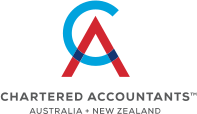When it comes to your super, it’s never too soon to start investing. This is true even for high income earners like doctors. Here’s key information for medical professionals to help understand and make the most of superannuation.
Superannuation can be hard to understand. Given the ever-changing legislation surrounding this already murky topic, it’s no wonder that even skilled and knowledgeable professionals (including doctors like you) put super on the backburner.
Your super, however, is still one of the most effective investment strategies and a reliable way to prepare for retirement.
Here’s what you should know about super and how it affects you as a medical professional.
How Your Super Fund Works
Your super fund accumulates a portion of your earnings over many years until you reach the age of retirement. Your employer is responsible for contributing a percentage of your salary into the fund. You can optionally sacrifice more of your earnings to pad your fund but there is a limit for how much you can contribute each year.
You can use the funds in your super to invest in various ways to help grow the money even further, but you can’t use the money until you’re retired.
Now, let’s review some other key considerations about superannuation, particularly for doctors.
Key points on Super for Doctors
You need to start saving now.
As a doctor, you need to start paying attention to your superannuation plan much sooner than you’d think – even if you’re relatively new to medical practice. This is because you’re already late to the game.
Doctors spend a significant portion of their lives studying. You spent several years learning instead of earning so you may be a bit behind in your retirement savings.
The sooner you prioritise contributing to your super, the more time your fund will have to experience growth. What’s more, the annual limit for making a voluntary contribution to your super fund means that you can’t just save up and deposit a large sum later on in life when you’re getting close to retirement.
Giving attention to your super fund now will also help you to mitigate any unexpected negative circumstances. For example, what if you get injured during your working years and have to stop practicing? What if family responsibilities limit your earning capabilities? What if you have to retire earlier than planned? What if you have large expenses come up after you’ve reached retirement and need to use up more of your savings than you anticipated?
Anticipating such situations will motivate you to start making the most of the time you have to save up for retirement.
You might have to consolidate your super fund accounts.
There’s usually no need to have multiple super funds but you may have unaccounted-for super in accounts you’ve forgotten about. This happens when you switch jobs and forget to take your super savings with you to your new employer/fund.
Forgotten super can be a bad thing since those neglected accounts may still be charging you fees out of the balance you have left there.
You can check with the ATO to find out if you have any lost super somewhere.
Before you consolidate your super fund accounts, however, consult with a financial adviser for guidance. Cancelling one account could affect things like your insurance coverage that may be attached to that account.
Superannuation contributions help you save on tax.
The government is happy to take a significant cut from the income of high-earners. And as a doctor, you earn more than most people.
Super is taxed at a lower rate than regular income so putting away as much of your earnings as you can means you may get a tax break. This is why superannuation is so important for doctors to understand.
Invest diversely.
You can use your super fund to invest in various areas, and you should. If you keep your investments concentrated on just one sector then you risk losing a lot, if a market takes a turn for the worse. Generate different income streams by investing in properties, shares and international investments, for example. Your super fund will have a failsafe in the event that one or two of your investments don’t perform well. Take care to invest in smart and safe endeavours and not suspicious schemes that target high-earners.
How to Choose a Super Fund
There are many super fund options. You may want to consider sticking with an industry fund rather than one that’s bank-owned. You’ll likely find that the industry fund is more member-focused.
Another thing to consider when choosing a super fund is the cost. Super funds come with specific fees attached and you don’t want to pay a cent more than you have to. Carefully comparing the fees and benefits of each type of fund will help you choose the best option. You can usually find a clear statement about the fees listed in the product disclosure statement on the website of any fund.
Beyond the fees, you’ll also want to examine the investment strategies available with a super fund. Some accounts seem expensive, but they offer attractive investment options. Others look like they have low fees on the surface, but they charge you extra fees later on when you use their investment services.
If you don’t choose your own superannuation strategy, then your employer will set you up with a default account. This fund will have low fees but it will also likely offer few investment opportunities. If and when you decide to switch to a fund of your choice, remember that you can only make the change once in any given year so think carefully and choose wisely before committing.
What About a Self-Managed Super Fund?
Many professionals including doctors are taking super responsibility into their own hands. A Self-Managed Super Fund (SMSF) does give you more freedom with your investment decisions, but it also leaves you responsible for any failed investment or poor investment decisions.
Self-managed super funds tend to be a bit costly and risky to manage.
Whether you choose to manage your own super fund or shop around for another option, you’d do well to get some professional advice, first.
Get Advice
When it comes to your super, you don’t want to risk making mistakes or adopting the wrong strategy. Seek advice not only from experienced accountants and financial advisers, but advisers who get your needs. The team at Nitschke Nancarrow can help you through every super question and need.
Contact Nitschke Nancarrow, experts in all aspects of superannuation for doctors – accounting, financial planning, investment and business. We operate in Adelaide, Sydney, Melbourne and throughout Australia. Managing partner Kym Nitschke is available for a free initial discussion about your situation. Call us on (08) 8379 9950 or send me an email.
– Kym Nitschke
The information contained on this web site is general in nature and does not take into account your personal situation. You should consider whether the information is appropriate to your needs, and where appropriate, seek professional advice from a financial adviser.
Taxation, legal and other matters referred to on this website are of a general nature only and are based on Nitschke Nancarrow’s interpretation of laws existing at the time and should not be relied upon in place of appropriate professional advice. Those laws may change from time to time.
Nitschke Nancarrow specialises in accounting, tax and financial advice for superannuation. Contact us now for a no obligations discussion about your needs.














